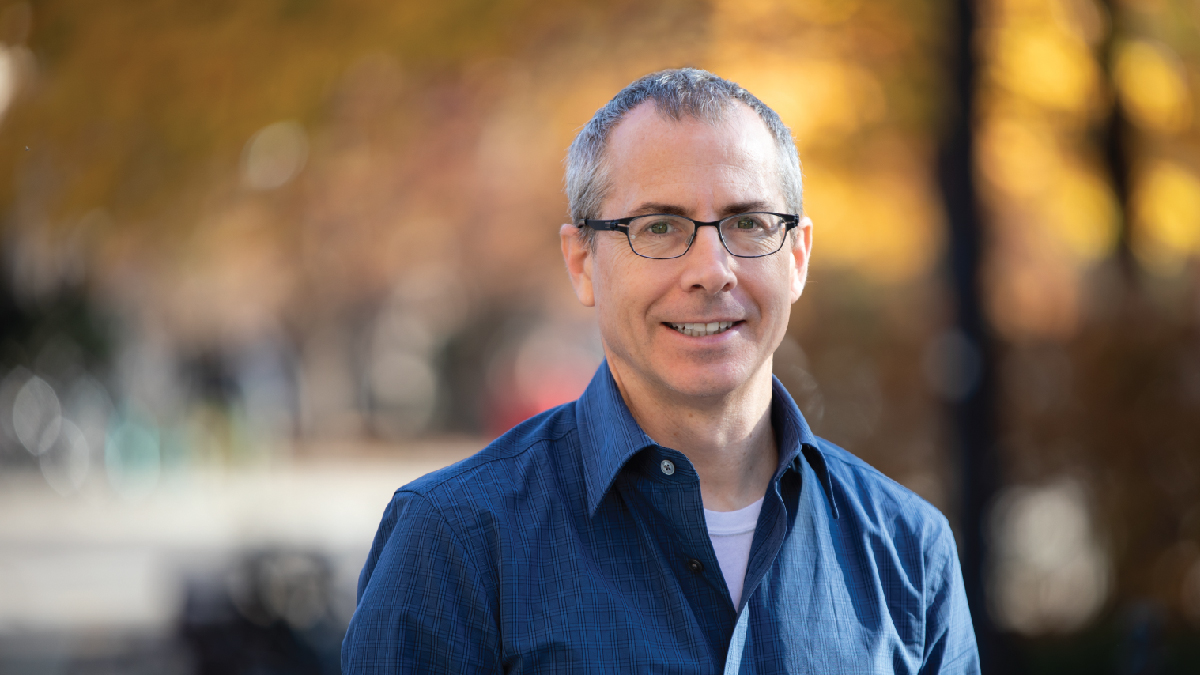Advancing Personalized Audiology Through Mechanistic Cross-Species Auditory Neuroscience
12-11-2023

West Lafayette, Indiana - In the heart of Indiana, where the rhythm of farming machinery meets the winds of progress, Purdue University is at the forefront of an innovative audiology exploration.
A team of Purdue faculty, including Ed Bartlett, Associate Dean for Undergraduate Affairs, College of Science, have come together in a research project to advance accessible mechanistic precision audiology through data-driven cross-species auditory neuroscience. The interdisciplinary team is led by Michael Heinz, Professor of Speech, Language, and Hearing Sciences (SLHS) and Biomedical Engineering (BME), and also includes Ananth Grama, Computer Science (CS), and Jennifer Simpson, Josh Alexander, and Maureen Shader (all SLHS). Together they delve into the complexities of hearing and its profound impact on health and cognitive well-being.
At the core of Bartlett's work and the work of the team, lies an emerging hypothesis: untreated hearing loss is not merely a matter of diminishing auditory senses but serves as a potent marker for broader health concerns. The rural communities of Indiana, with their distinctive soundscape dominated by farming noise and heavy manufacturing, and populated by many military veterans, provide a unique backdrop for understanding the implications of untreated hearing loss, particularly in an aging population.
Precision audiology elevates the assessment of hearing health to a sophisticated mechanistic level. It goes beyond measuring hearing sensitivity, delving into the intricacies of neuronal signal propagation—a fundamental aspect of understanding brain function in relation to hearing. Bartlett brings his expertise in this area to the team’s work, creating a nuanced approach that provides a comprehensive understanding of the challenges individuals face in processing and comprehending sounds, especially in complex listening situations.
A critical aspect of the project’s approach is the mechanistic cross-species foundation being developed for precision audiology. Bartlett is co-PI on two cross-species projects funded by the Department of Defense and in collaboration with colleagues at the University of Pittsburgh. These studies are exploring the development of rapid auditory assessments and the effects of various noise exposures on the auditory system. His work has made it clear that complex and adaptive interactions occur between the peripheral and central auditory systems following noise exposure, which must be included in the development of individualized auditory profiles.
However, the narrative transcends its neural underpinnings to touch on a relatable scenario—the "cocktail party effect." In this everyday setting, where multiple voices converge, the struggle to focus on one conversation becomes increasingly challenging, even for those in the prime of life. It's a scenario that underscores the tangible impact of hearing loss on the cognitive load individuals with hearing loss experience in real-world situations.
In the midst of this scientific exploration, a practical application emerges. This multi-disciplinary team envisions a future where personalized audiology becomes the norm across the lifespan, tailoring diagnoses and treatments based on data-driven clusters of similar hearing loss profiles. The team envisions the development of accessible open-source technology for standardized audiological assessments that will inform data-driven AI-enabled adaptable, open-source hearing aids. These would surpass standard over-the-counter solutions in hearing improvement. This isn't just a scientific pursuit; it's a step towards a future where the symphony of individual auditory experiences is understood and addressed with precision to promote hearing health, overall health, and quality of life.
The narrative extends beyond the laboratory to a recognition of the team's efforts—selected for seed funding as part of Purdue’s Life and Health Sciences Summit. This acknowledgment not only reinforces the pioneering nature of their research but also signifies the potential impact on global audiological advancements
Purdue's commitment to openness and collaboration amplifies the impact of this research. Beyond the confines of the laboratory, the university envisions open-source initiatives, making tools and data accessible to a global audience. This move towards transparency not only enriches the local community in Indiana but also extends a collaborative hand to address audiological challenges worldwide.
In the realm of audiology, where scientific rigor meets the complexities of human experience, the team's research stands as a beacon of progress—a call to attention, a commitment to unravel the mysteries of hearing loss, and a promise to share the insights gained with the world. In this professional narrative, the overarching theme persists: the pursuit of understanding and addressing hearing challenges is more than a scientific endeavor; it's a collective dedication to enhancing the quality of life for individuals worldwide.
Writer – Alisha Referda, Communications Specialist